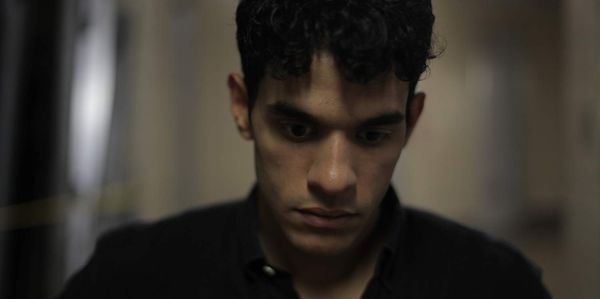I’ll let you know now that from the start, I was always going to be biased to like this film. Understated sci-fi is something that always enthralls me, whether it comes in the form of Her or another one of Charlie Kaufman‘s romantic oddities, or the emotionally devastating Arrival, and any film that can utilize the genre without bombast or thrills is immediately intriguing to me.
Falling nicely into this subgenre is Anya, a humanist drama regarding genetic science that is far more concerned with the ethical and anthropological implications of its central conceit than how best to entertain the audience with it.
A New Kind Of Human
Centering around Marco, the outcast of an isolated Carribean community, as he attempts to conceive a child with his wife Libby, Anya (much like Julie Dash’s meditation on heritage Daughters of the Dust) begins with a monologue by a baby yet to be born, presumably the titular character. After struggling to get pregnant, Marco reveals that his community believes in a curse: those who leave are doomed to infertility. The couple decides to visit Libby’s ex-boyfriend, the geneticist Seymour, to look into the cause of the ‘curse’ further, revealing a truth about his family and culture that has the power to change the scientific classification of people and redefine what it means to be human. But in order to explore this phenomenon, the trio would have to crack open a notoriously private culture, laying out their traditions and lifestyle for public scrutiny.

Though Anya does effectively utilize the well thought out science fiction elements as a springboard for wider philosophical discussions, the romance and chemistry between the couple is still at the forefront of the narrative. Rather than jumping straight into the action, the filmmakers take time to show us the organic development of their relationship, letting us understand the dynamics for ourselves in a textbook example of the ‘show, don’t tell’ rule. By balancing out the dryer scientific sequences with their personal drama, Anya keeps you invested throughout the entirety of the succinct running time.
The Scientific Basis
Rather than putting the details aside and encouraging a suspension of disbelief – an understandable direction to take for many science fiction ventures – Anya maintains a high level of academic accuracy throughout, enhancing the humanist realism. In fact, the filmmakers actually consulted a wide variety of academic sources (which can be found on the film’s website) in order to provide a realistic scenario basis for the narrative, going as far as to entirely invent the ‘Narval’ community that Marco comes from.
Unfortunately, this somehow has the effect of leaving the audience behind intellectually as, without a large budget, House-style graphics depicting what they’re telling us about couldn’t be provided.
Naturalistic Performances
Alongside the understated tone and realist aesthetic created by writer and director duo Jacob Akira Okada and Carylanna Taylor, the film is kept grounded and relatable by the organic performances by its leads. As Marco, Gil Perez-Abraham is a man conflicted, torn between the culture he was born into and a life he has chosen for himself – Ali Ahn is a perfect foil in this regard, as a down to Earth adoptee who was never raised within her culture of origin.
The chemistry between the two is natural and believable, their moments of small scale romance hitting harder than any grand gestures would, and their sympathetic journey of starting a family creating a more broadly relatable film than the niche premise may initially suggest. Rounding out the main trio is the charismatic Motell Gyn Foster as Seymour, another character divided by two instincts: progressing his career, and maintaining his moral code.
Conclusion: Anya
While I sometimes found myself drifting away during the more densely scientific scenes of Anya, I was consistently brought back by the chemistry between Libby and Marco, the fascinating concept at the heart of the film, and the ambivalent critique of anthropology and ethnography that went alongside it. The value and importance of conserving insular cultures in an increasingly homogenous and globalized world is an issue that is hard to tackle in a single film, but Anya does its best to provoke you into forming an opinion through complex, nuanced filmmaking.
What do you think? Did Anya provoke you into thinking about new humanist perspectives? Let me know in the comments!
Anya was released in the USA on November 26, 2019.
Does content like this matter to you?
Become a Member and support film journalism. Unlock access to all of Film Inquiry`s great articles. Join a community of like-minded readers who are passionate about cinema - get access to our private members Network, give back to independent filmmakers, and more.